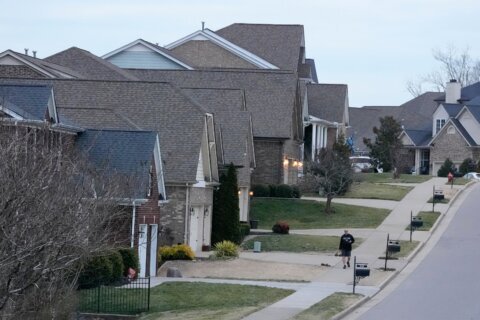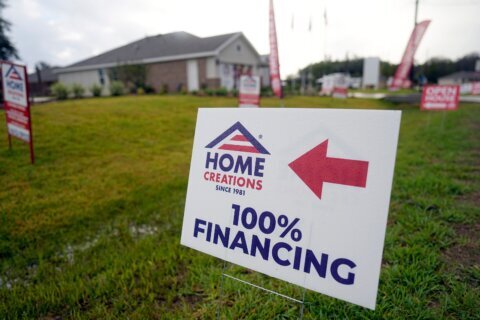For the U.S. rental market, the last decade or so has been a major turning point, as millions have turned to leasing as opposed to owning a home. But while the housing market in most major cities has largely recovered from the Great Recession, homeownership remains low. In fact, the number of Americans owning a home is near its lowest level in 52 years at just 63.7 percent in the fourth quarter of 2016, according to the U.S. Census Bureau.
Property managers and landlords have been forced to evolve quickly to not only meet demand for rental units — which still outweighs supply in most markets — but to also offer advanced amenities and create unique marketing methods to draw would-be homeowners into rental spaces instead.
As with homebuying, the majority of renters start hunting for their next home online — whether it’s a simple Google search or using a site or app that lists available apartments and rooms such as Zillow Rentals, Apartments.com and Craigslist. The move to online rental marketing has been a necessary and major shift for the rental industry — as consumers expect to find information online, they also seek real-time availabilities and a wider selection of apartments and homes to inquire about.
[Read: The 10 Best Apps for Finding Your Next Apartment.]
But rumor of popular vacation and short-term rental site Airbnb entering the long-term lease market could trigger another change for the industry. In March, Bloomberg reported that anonymous sources confirmed Airbnb has enlisted McKinsey & Co. to research the long-term rental industry for potential expansion into that sector.
At the time of Bloomberg’s report on March 17, the short-term rental company declined to comment on the topic. “Examining different parts of the market is standard operating procedure, and we don’t have any announcements to make,” Airbnb spokesman Nick Papas told Bloomberg in March.
This week, Papas reiterated to U.S. News that Airbnb has no announcements or further information on any possible expansion.
While the majority of Airbnb’s listings are for short-term stays, the company currently offers listings for reservations on a more long-term basis, more than 28 nights, that allows for spaces to be booked at a monthly rate. These monthly stays, which guests can rent for up to six months, may be a sublet or simple extended stay option, but they can be characterized differently depending on how a host or property owner reports the income and use of the space to local and state government.
Airbnb’s short-term rental platform has certainly disrupted the hotel industry, while also highlighting areas of the greater rental industry that can evolve to better meet consumer needs, says Jamie Gorski, chief marketing officer for The Bozzuto Group, a real estate development and construction company headquartered in Greenbelt, Maryland.
“[Airbnb] came to address what our customers want today,” Gorski says, speaking particularly to the flexibility an Airbnb stay offers and a greater feeling of cost control for consumers.
[See: 8 Apartment Amenities You Didn’t Know You Needed.]
If long-term leases became a part of the Airbnb platform as it currently stands, it’s likely formal property management companies would advertise available apartments and homes for rent on the site, similar to how many apartment leasing offices post available units on Craigslist’s housing boards, in order to reach their desired audience.
A big part of Airbnb’s appeal for potential hosts is that regular consumers can make money renting out space to visitors without necessarily being a real estate investor. But in the leasing industry, apartment listing sites such as Zillow Rentals, Apartments.com and RENTCafé are primarily made up of industry professionals who market availabilities. Even more market transparency, combined with the small-time landlords, might help drive down rates for renters — or at least provide another source for viewing a complete range of rental rates and available spaces.
The rental living industry has already begun taking cues from short-term rental companies like Airbnb and VRBO with flexible living communities. Gorski points to WeLive in New York City and Arlington, Virginia — a collaboration by Vornado Realty Trust and office developer WeWork — as a rental community that offers a similar flexibility and convenience to what you might find during Airbnb stays, with furnished spaces, utilities already set up and month-to-month stay options.
“These are offshoots in our industry based on what’s happening with Airbnb, and finding different product types to sort of accommodate some of those customer wants,” she says.
Property managers, landlords and HOAs have expressed concerns over short-term rental listing sites advertised by individuals in the past. One of the major concerns is that guests coming onto the property haven’t been vetted by the property management the same way other residents have been. Lisa Trosien, president of ApartmentExpert.com and a multifamily educator and consultant, says those concerns may keep some rental professionals apprehensive about working with a site like Airbnb for a long-term lease option as well, unless a similar tenant-screening process can be done through the site.
“You have to think about the comfort and, to a degree, the safety of the people that you already have leased your apartment homes to,” Trosien says. Renters who have gone through the credit and background checks to rent an apartment may not feel comfortable living next door to a tenant that didn’t go through the same screening.
[Read: What New Fair Housing Guidelines Could Mean for You.]
Landlords and property managers have to pay particularly close attention to fair housing laws that prohibit discrimination in renting to tenants of federally protected classes. An amateur landlord may be ignorant of necessary compliance, and Trosien notes it could be trickier than some may think to ensure renters are getting the same fair treatment required of professionals in the industry.
“It might be more difficult than people are currently anticipating,” she says.
More from U.S. News
10 Ways Millennials Are Changing Homebuying
The Best Places to Live in the U.S. in 2017
The 30 Most Fun Places to Live in the U.S.
What Would Airbnb’s Expansion to Long-Term Rentals Mean for Renters? originally appeared on usnews.com







